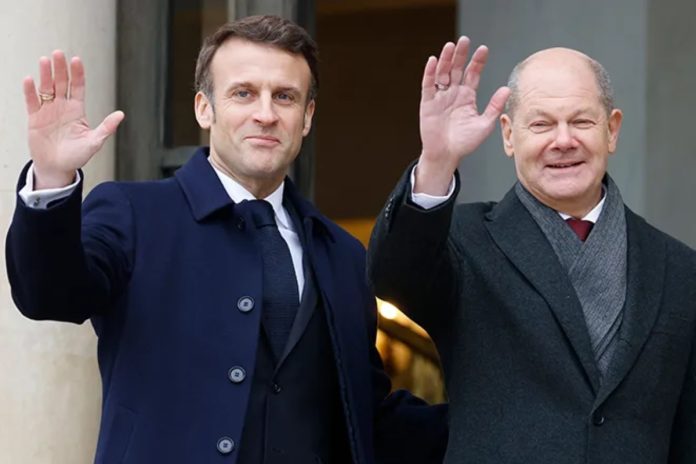The longstanding alliance between France and Germany, often hailed as the cornerstone of European integration, is facing unprecedented strains that threaten to destabilize the European Union (EU) at a crucial juncture in its history. The divergence of interests and visions between French President Emmanuel Macron and German Chancellor Olaf Scholz has laid bare deep-rooted tensions that extend beyond mere diplomatic disagreements to fundamental differences in economic, energy, security, and defense policies.
At the heart of the rift lies the handling of the conflict in Ukraine, where France and Germany find themselves at odds over crucial strategic decisions. Macron’s proposal to send Western troops to the frontlines and the disagreement regarding the supply of Taurus missiles have exacerbated tensions, leading to accusations of unilateralism and inadequate support from both sides. Recent revelations of German military officers considering supplying long-range cruise missiles to Ukraine underscore the complexity of the situation and the clandestine maneuvering within the defense establishments of both nations.
The discord over Ukraine is symptomatic of broader disparities in economic and energy strategies. While France champions nuclear energy as a reliable source, Germany’s shift towards renewable energy has faced challenges, particularly in light of its dependence on Russian natural gas. The recent disruption in gas supplies due to the conflict in Ukraine has exposed vulnerabilities in Germany’s energy policy, prompting a reconsideration of its reliance on renewables and a pivot towards liquefied natural gas, despite its environmental drawbacks.
Economically, Germany’s traditional prowess has been called into question, with its industry grappling with the consequences of energy shortages and disruptions in supply chains. France, on the other hand, has seen economic growth but struggles with mounting public debt and fiscal deficits. The disparity in economic performance has fueled resentment and accusations of unfair competition, exacerbating tensions between the two nations.
In the realm of defense, accusations of industrial rivalry and strategic ambivalence abound. Reports of German interference in French acquisitions and France’s perceived reluctance towards NATO have further strained relations. The lack of cohesion in defense policies underscores the broader challenge of forging a unified European stance in international relations.
Beyond the personal ambitions of Macron and the leadership transition in Germany, the Franco-German rift reflects deeper structural flaws within the EU. The absence of a coherent European decision-making mechanism and a clear positioning within the transatlantic alliance leaves the bloc vulnerable to internal divisions and external pressures.
As Europe grapples with the fallout from Brexit and geopolitical uncertainties, the Franco-German discord poses a significant threat to the EU’s stability and cohesion. Urgent efforts are needed to address these tensions, foster greater cooperation, and reaffirm the commitment to European integration in the face of mounting challenges. Failure to do so risks undermining decades of progress and jeopardizing the future of the European project.




